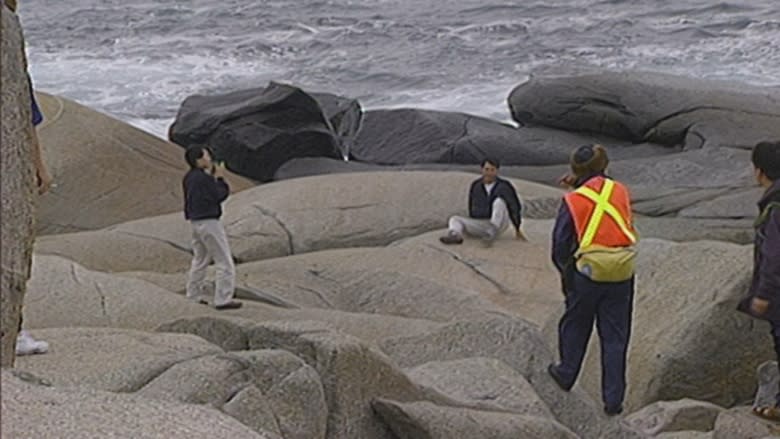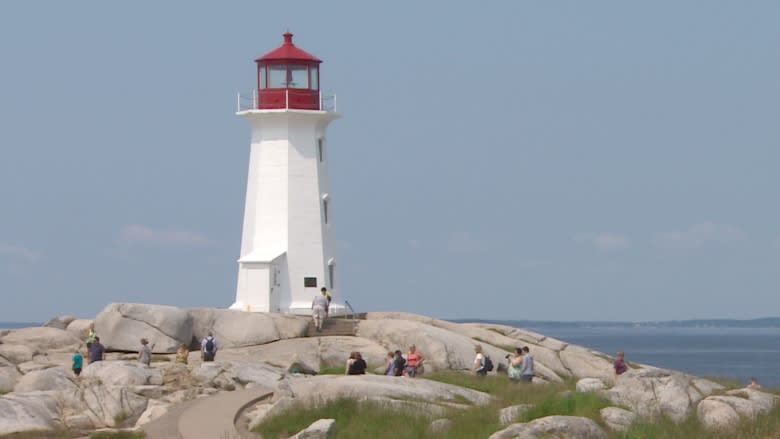The case for bringing rock patrollers back to Peggys Cove
Nova Scotia should consider reintroducing rock patrollers at Peggys Cove after recent photos of tourists in precarious situations were shared widely online, says a chaplain with the Halifax Regional Police.
In one photo, a woman is seen standing in the waters at the base of the tourist attraction's iconic rocks. The snapshot elicited shock and admonishment among those familiar with the unpredictable seas.
"[The patrollers] seemed to provide a level of safety that's not there right now," said Rev. Cynthia Chenard.
"It also provided a level of knowledge about the rocks, about the tides."
Program cut over safety concerns
Between 1995 and 1999, the province hired students to patrol the rocks at Peggys Cove over the summer. Outfitted in safety vests and trained in CPR and first aid, they were tasked with preventing people from getting too close to the ocean.
At the time, the cost to run the patrol program was less than $30,000 a year.
The provincial government of the day cancelled the program in 2000 over safety concerns for the workers themselves. Lawyers recommended cutting the program because the working conditions for the patrollers didn't meet occupational health and safety standards.
Unfamiliar ocean poses danger
Signs at Peggys Cove that tell people to keep off the black rocks and warn of sudden high waves and drowning hazards have not kept curious visitors from venturing as close as possible to the ocean.
"The rock workers can explain to people why they should not go down on the rocks," said Chenard.
"I think sometimes if the explanation as to why is given, that holds more weight than a sign."
Chen ard has experience with visitors to the area who are unfamiliar with the power of the ocean and how quickly conditions can change.
She was a chaplain for the RCMP when Swissair Flight 111 crashed into the Atlantic Ocean near Peggys Cove in 1998, killing all 229 people on board. Chenard said she met many families of the victims who had never been near the ocean before.
"They didn't know how the tide could come, they didn't know how big the waves could be. They didn't know that the seaweed could not only be slippery but you could get entangled in it," said Chenard.
False sense of security
Marla MacInnis, a spokesperson for the province, said the rock patroller program was cancelled based on expert advice.
The workers were not trained to provide a search and rescue role and, at the time, MacInnis said there were fears their presence was creating a false sense of security for people walking on the rocks.
In an email to CBC News, MacInnis said the province has taken a number of steps to discourage people from getting too close to the water.
Some of those measures include new and "enhanced" safety signs, a video warning played at the Peggys Cove visitor information centre, "better communications" between tourism staff and visitors, interpretative panels that explain the strength of the ocean and a social media campaign.
The Sou'Wester Restaurant has also installed rock barriers around its parking lot to guide visitors toward the warning signs, MacInnis added.
Chenard agrees the signage helps, but she said not everybody pays attention to it.
"We're not going to stop everybody," she said.
"But I think we can do things that maybe will help them understand why we're concerned."



